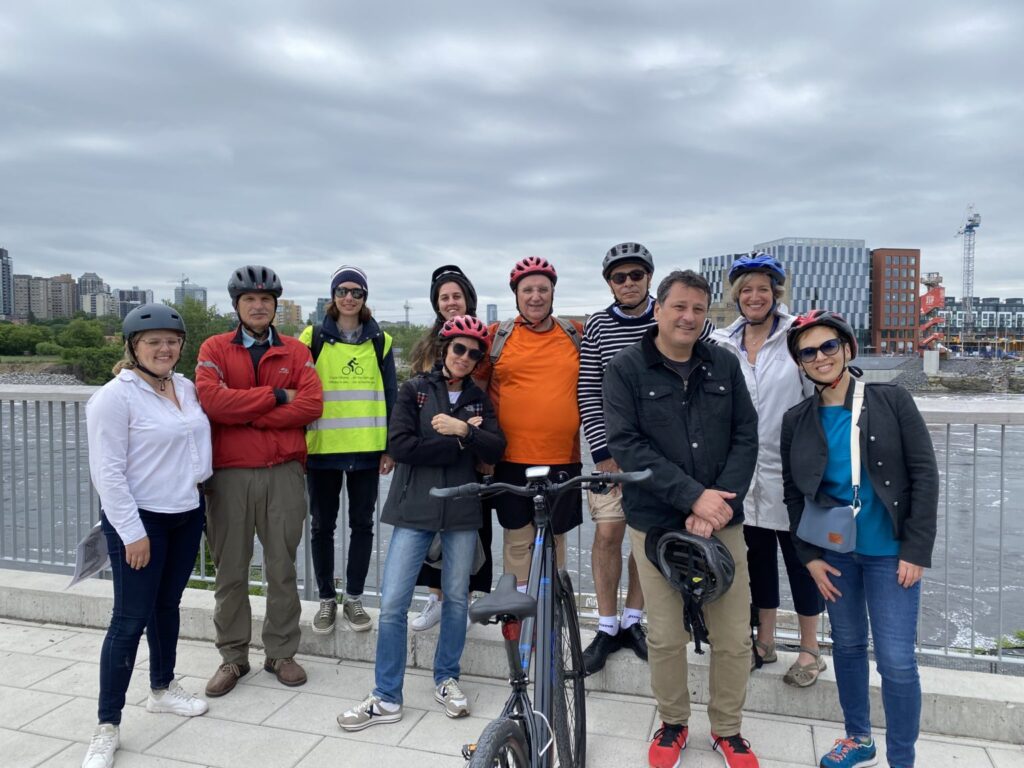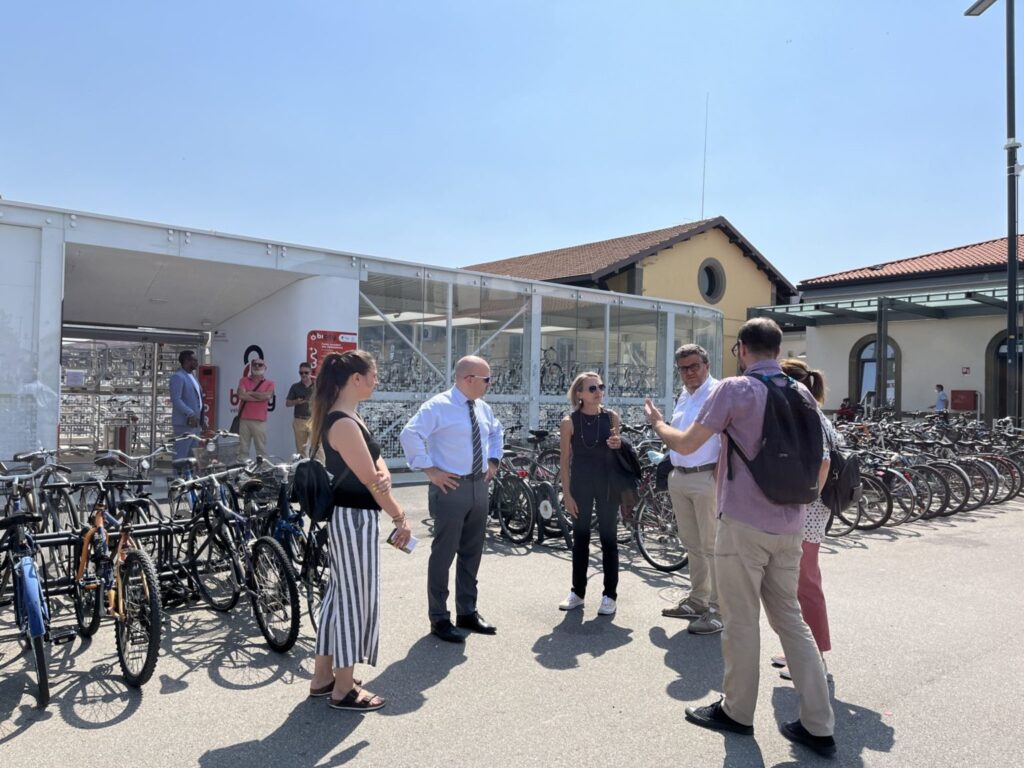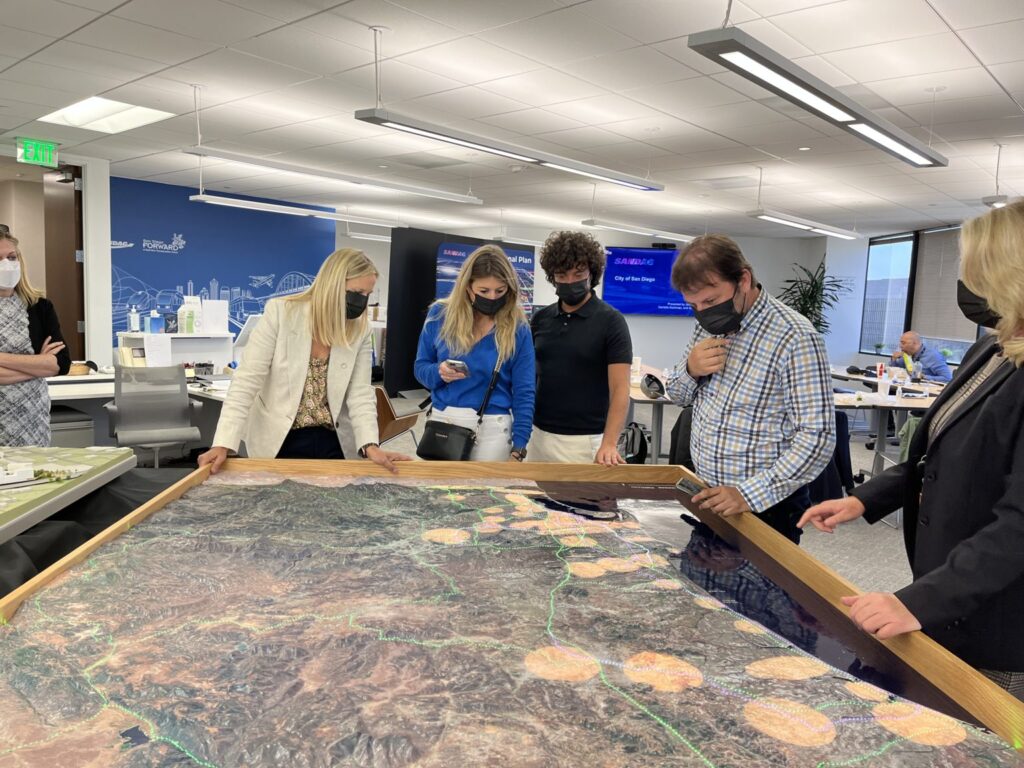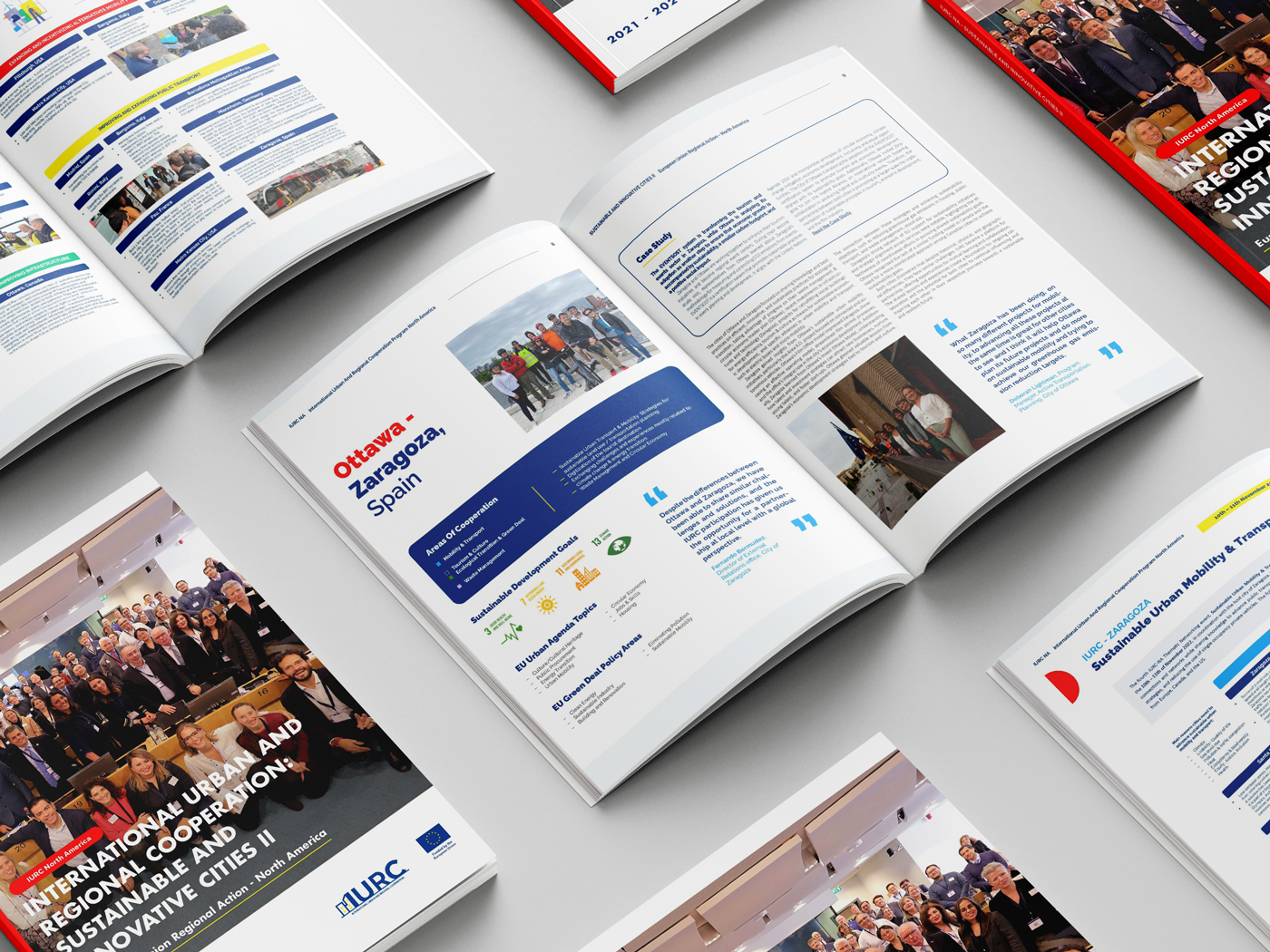The second phase of the IURC North America program witnessed significant achievements, fostering collaboration and knowledge exchange among cities. This phase comprised 8 city-to-city cooperation pairings and trios, along with 4 thematic networks, uniting over 50 different cities. Together, they participated in 6 thematic events and 20 technical webinars, culminating in the publication of a comprehensive guide capturing the results of these activities between 2021-2023.

Highlights from City-to-City cooperation:
Ottawa and Zaragoza exemplified the power of cross-border learning by sharing expertise in efficient, innovative, and sustainable practices for ecological transition. Leveraging advancements in waste management & circular economy master plans (Ottawa) and recent investments in infrastructure and technology (Zaragoza), both cities explored avenues such as retrofitting social buildings for energy efficiency, leveraging tourism & culture for sustainable economic development, and advancing urban mobility with initiatives like electric buses and micro-mobility. Notably, Ottawa is considering adopting Zaragoza’s EVENTSOST system to enhance sustainability in its tourism and events sector, underscoring the transformative potential of collaboration.
Braga and St. John’s centered on ecological transition, emphasizing initiatives such as the renovation of public buildings for energy efficiency, waste management, sustainable agriculture, and social innovation. The exchange of best practices led to mutual inspiration, with St. John’s expressing interest in replicating Braga’s Human Power Hub, a model for social innovation fostering city-community partnerships. Similarly, Braga found inspiration in St. John’s O’Brien farm, selecting it as a model for replication in the Northern Region of Galicia and Portugal.
The cooperation between Windsor and Mannheim focused on the renovation wave, sustainable urban mobility, nature-based solutions, and innovative wastewater-to-energy technology. Sharing initiatives such as Windsor’s R-DEER retrofitting subsidy program and Mannheim’s waste-to-energy facility highlighted the potential for mutual learning and replication of successful practices. Additionally, both cities explored innovative approaches to sustainable urban mobility, showcasing the importance of knowledge exchange in climate change mitigation and adaptation.
Aurora, Bergamo, and Rimini united to explore projects promoting multicultural events to enhance social cohesion. The cities also included initiatives such as community gardens, urban farms, and public-private partnerships for building renovation and neighborhood regeneration. Recognizing the power of international cooperation and advocacy, these cities emphasized the importance of collaboration in addressing common global challenges and driving innovation.

The Barcelona Metropolitan Area (AMB), the Northern Virginia Regional Commission, and the City of Boston focused on urban planning processes, innovative public spaces, and expanding green areas to combat urban heat islands. Exchanging insights and lessons learned, they emphasized the prioritization of climate change. The Mayor’s Office of New Urban Mechanics in Boston inspired transformative strategies through civic innovation. AMB’s organizational structure inspired Boston as it is restructuring its planning department, providing Boston and NVRC with a new approach to planning public spaces, housing, and mobility, among others. NVRC demonstrated the potential role of public-private partnerships in urban renewal, exemplified by Crystal City and Amazon HQ2 development.
The metropolitan areas of GZM and Metropolitan Kansas City collaborated to define methodologies for metro areas to test solutions that can be quickly validated and scaled up across several cities. As a result, a prototyping academy is being developed in both metropolitan areas utilizing common indicators to facilitate result comparisons. The metropolitan areas also highlighted the important role of public-private partnerships in urban renewal. Lessons learned encompassed organizational challenges, strategies for building public awareness, and the potential for scalable solutions to drive regional development.

Pittsburgh and Dortmund’s cooperation centered on global food policy and hydrogen technologies. Dortmund’s incorporation of Pittsburgh’s suggestions into its climate action program and Pittsburgh’s adoption of Dortmund’s effective city-community partnerships underscored the tangible impacts of city-to-city cooperation.
San Diego and Madrid’s cooperation encompasses the exchange of knowledge in the planning, implementation, and maintenance of mobility hubs, with San Diego expressing interest in replicating Madrid’s successful Canalejas Mobility Hub. By transforming underutilized parking structures into mobility hubs, both Cities are becoming sustainable, accessible, and healthier. The cities also exchanged insights on public transport efficiency, and urban greening, and electrification.
In summary, the IURC North America program’s second phase facilitated transformative cooperation and knowledge exchange among cities, highlighting the importance of partnerships in addressing common global challenges and driving sustainable development.
